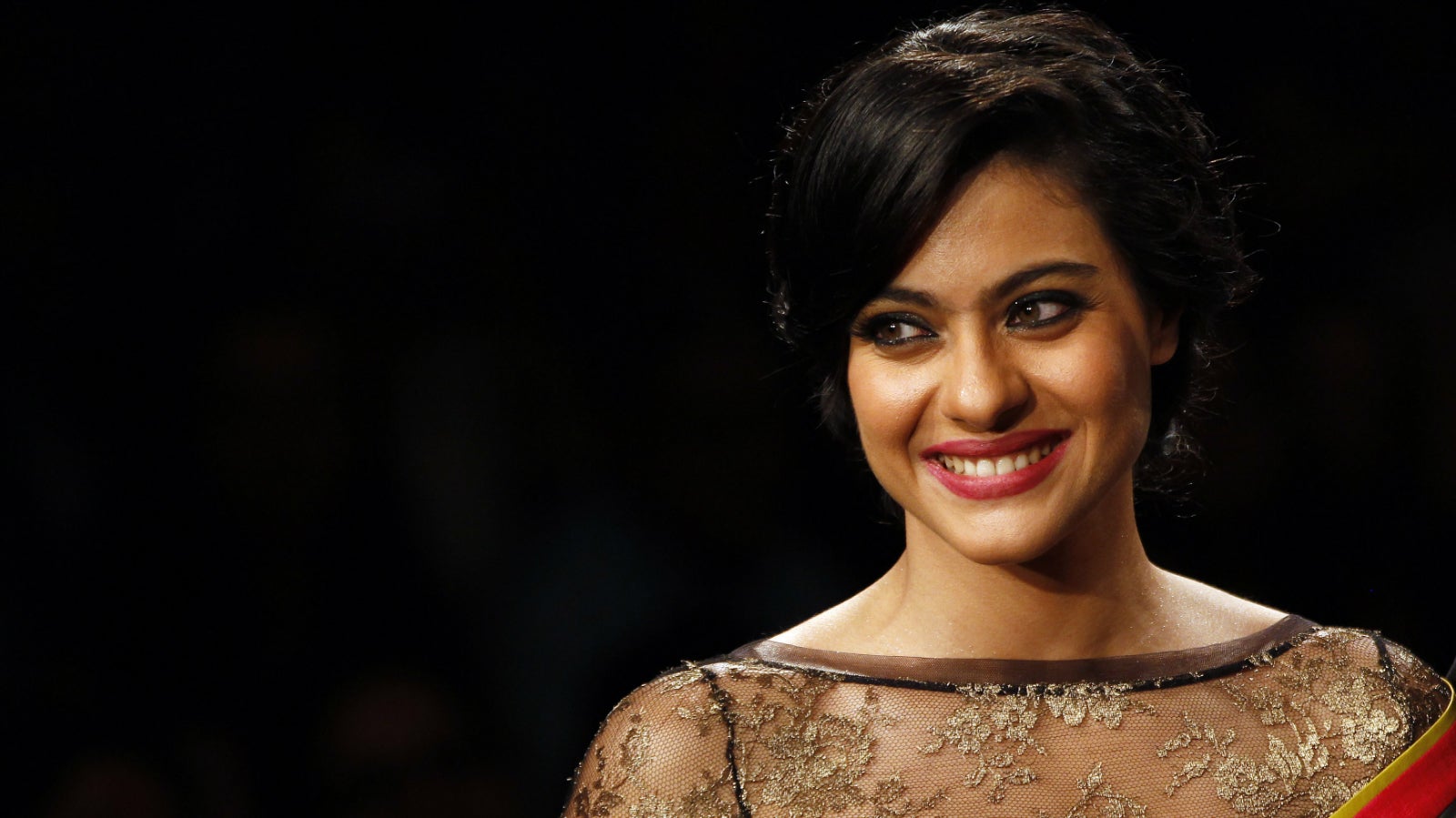Kajol is no longer the “dusky” Bollywood rebel—and that’s a serious problem
For India’s millennials, Kajol was one of the few Bollywood actresses who was comfortable in her own skin. She was darker than most other leading actresses in the 90s, had a unibrow, and wasn’t typically fashionable. But none of that stopped her from becoming one of the most successful Hindi film actresses of all times.


For India’s millennials, Kajol was one of the few Bollywood actresses who was comfortable in her own skin. She was darker than most other leading actresses in the 90s, had a unibrow, and wasn’t typically fashionable. But none of that stopped her from becoming one of the most successful Hindi film actresses of all times.
Still in her late teens, Kajol arrived at the Bollywood forefront with the commercially successful crime-thriller, Baazigar, in 1993. Two years later, she starred in Dilwale Dulhaniya Le Jayenge—one of India’s cult super hit films—and made her mark for good in the film industry.
In her career spanning more than two decades, the “dusky diva”—as she was often called by the Indian media—delivered several blockbusters and her loud demeanour, devil-may-care attitude, and casual goofiness helped her win millions of fans across the world.
But that seems to be changing now.
Kajol—who was on a hiatus for five years—returned to the big screen with Dilwale last Friday, and she doesn’t quite look herself. In the film, where Kajol is cast opposite Shah Rukh Khan, she looks several shades lighter—and now resembles a stereotypical fair-skinned Bollywood actress.
A comic strip on Buzzfeed attributed the following statement to Kajol’s character.
Even though it’s never mentioned in the film, it’s reasonable to assume that most of my time goes into implanting mini-tube lights under my skin.
“Kajol is 41 and looks half her age,” another film critic wrote in Huffington Post, ”aside from having given fairness cream companies further reason to exist.”
Last year, the Indian media reported that the actress had opted for a skin melanin surgery. But Kajol dismissed the reports.
“I have not undergone any skin whitening surgery. I have just stayed out of the sun,” she said.
“For 10 years of my life, I was working all the time under the sun, which is why I got tanned. And now I am not working in the sun anymore. So I’ve got untanned. It’s not a skin whitening surgery, it’s a stay at home surgery,” she told entertainment website Pinkvilla in 2014.
“I’ve already gotten that (success and stardom). Why would I lighten my skin now?”
But her vehement denial hasn’t stopped the conversation around her skin colour, mainly because she has gone from someone many Indian women could identify with, to just another pale-skinned Bollywood star.
Fairer India
But Kajol isn’t the only one who seems to have succumbed to India’s obsession with white skin.
A 2014 Morgan Stanley report found that for nearly half of Indian consumers who took part in a survey, the most important attribute in a skin cream is its ability to lighten skin colour.
While superstars like Shar Rukh Khan and Hrithik Roshan have been endorsing fairness creams for nearly a decade now, several younger actors have started speaking out against India’s obsession with fair skin.
Earlier this year, Kangana Ranaut revealed that she refused to endorse a fairness cream. “As a celebrity, what kind of an example would I be setting for younger people? I have no regrets about turning this offer down. As a public figure, I have responsibilities,” she said.
We welcome your comments at [email protected].